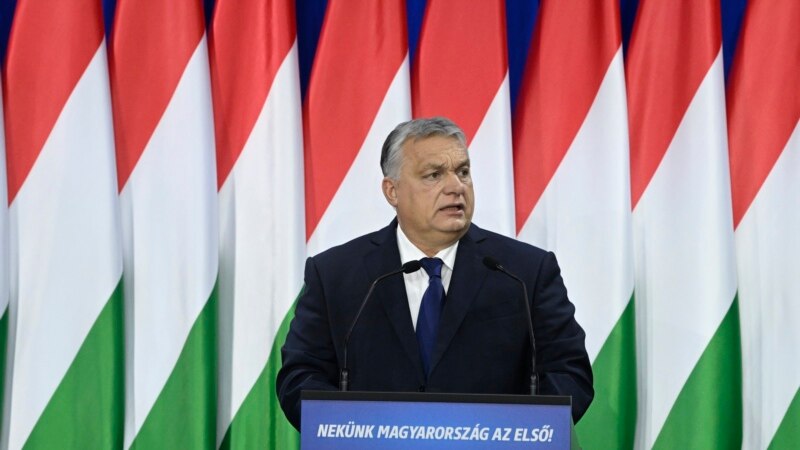The Hungarian parliament can ratify Sweden’s NATO membership when it convenes for its new spring session later this month, Prime Minister Viktor Orban told his supporters on Saturday.
“It’s good news that our dispute with Sweden will soon be settled,” Orban said in a key speech. “We are going in the direction that at the start of parliament’s spring session we can ratify Sweden’s accession to NATO.”
Parliament reconvenes on February 26. Sweden applied to join NATO nearly two years ago in a historic shift in policy prompted by Russia’s full-scale invasion of Ukraine.
Orban said he and Swedish Prime Minister Ulf Kristersson had taken steps “to rebuild trust” between their two countries. Orban did not say what those steps were.
Hungary is the only NATO country not yet to have ratified Sweden’s application, a process that requires the backing of all NATO members. The delay has soured relations with the United States and raised concerns among its allies.
Orban’s ruling Fidesz party has cited what it called unfounded Swedish allegations that it has eroded democracy in Hungary as the reason why Sweden’s NATO bid had been held up.
Orban has faced the most challenging period of his 14-year premiership in the past week amid a row over a presidential pardon for a man who helped cover up sexual abuse in a children’s home. The scandal led to the resignation of Hungary’s president and also the former justice minister — two of Orban’s key allies — and late on Friday tens of thousands attended a mass street protest called by popular influencers.
In his first public statement since the president resigned a week ago, Orban said his government would emerge stronger, focusing on the economy and on June’s European parliament elections, which should boost right-wing political forces in Europe and “bring change in Brussels.”
He said President Katalin Novak’s resignation was “like a nightmare,” but was the right thing to do, adding that his government would draft legislation to strengthen child protection.
Orban, who has clashed with the European Commission over his government’s moves to curb media freedom and LGBTQ rights as well as over his migration policies, said this year could bring changes in Europe and elsewhere.
“We would really like Donald Trump to return as President (of the U.S.) and … make peace here in the eastern half of Europe,” said Orban, a long-time Trump supporter.

